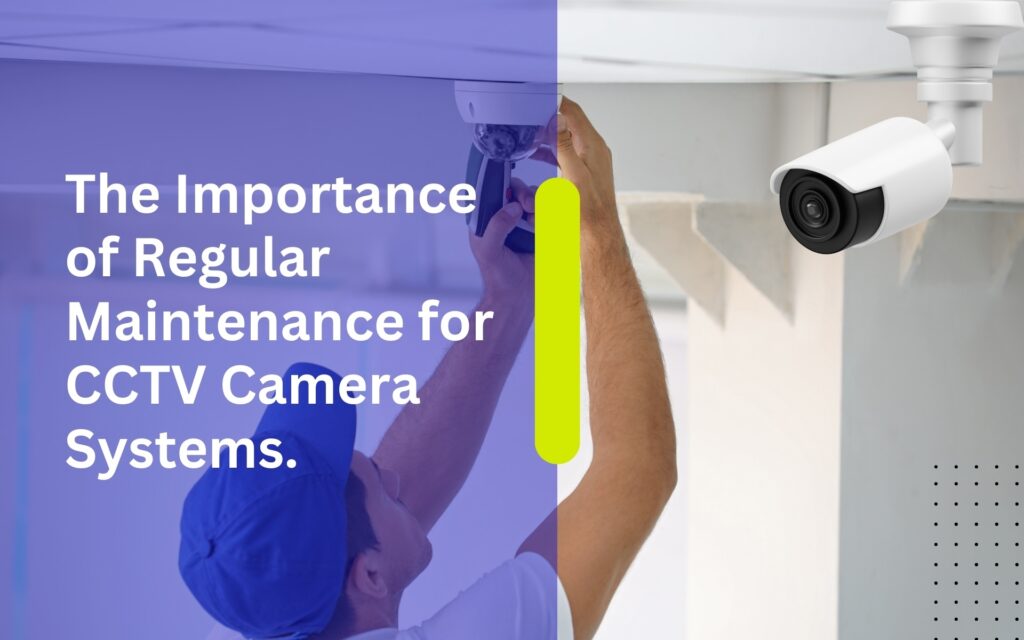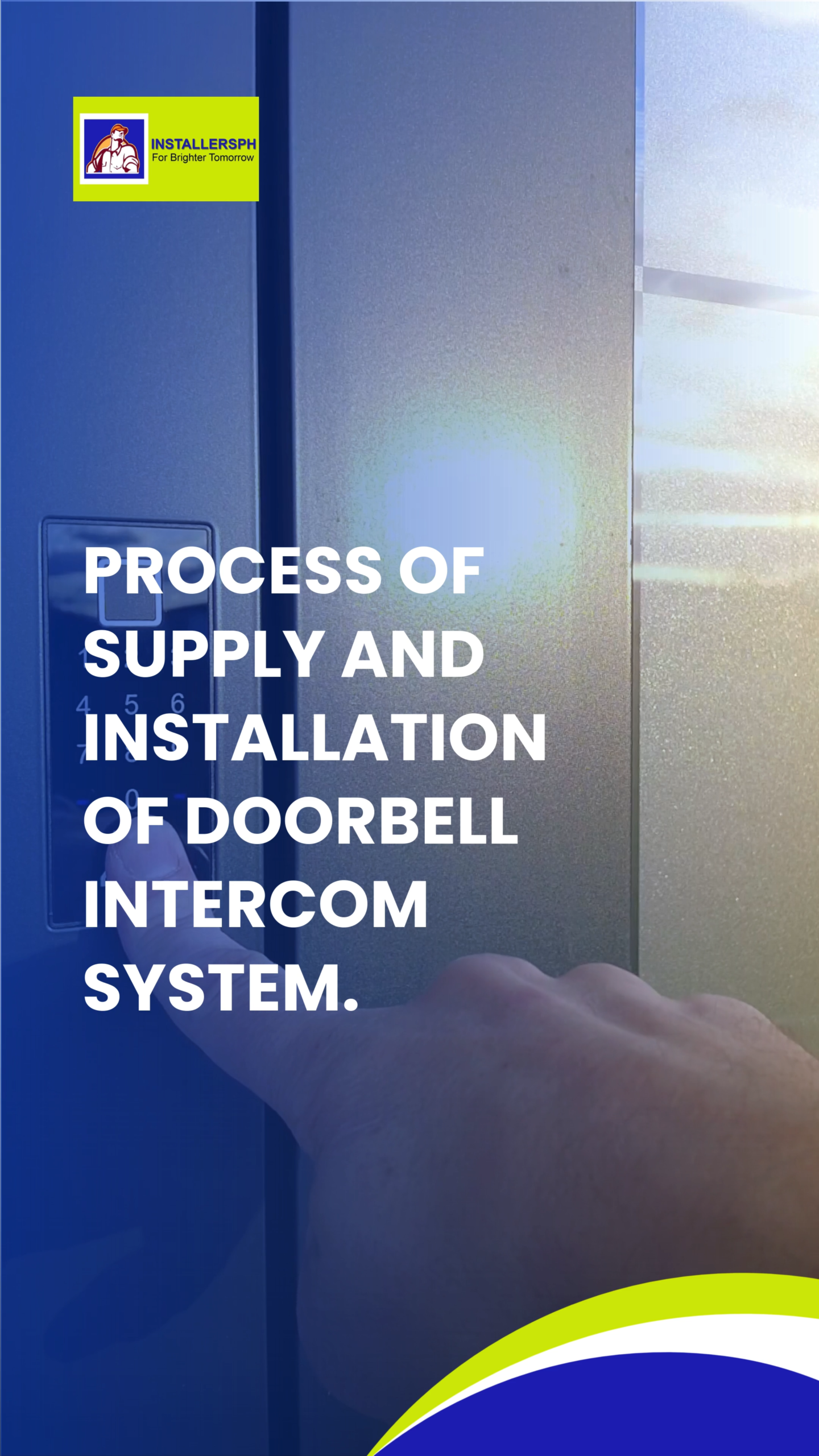A Day of Giving: Visiting Everlasting Hope Childhood Cancer Mission. Introduction. InstallersPH IT Solutions recently had the honor of visiting the Everlasting Hope Childhood Cancer Mission, an experience that deeply moved our …
The Importance of Regular Maintenance for CCTV Camera Systems.

Introduction
In an era where security concerns are paramount, Closed-Circuit Television (CCTV) camera systems stand as stalwart guardians, keeping a vigilant eye on our properties, businesses, and public spaces. However, the effectiveness of these systems heavily relies on their consistent functionality. Regular maintenance of CCTV camera systems is not merely a matter of convenience; it is a critical aspect of ensuring optimal performance and maximizing security measures. In this comprehensive guide, we delve into the significance of regular maintenance for CCTV camera systems, exploring its benefits, best practices, and the implications of neglecting this essential aspect of security infrastructure.
Understanding the Importance
1. Enhancing Security Efficacy
CCTV camera systems serve as a primary deterrent against criminal activities, providing continuous surveillance and evidence gathering capabilities. However, without regular maintenance, their reliability diminishes, compromising their ability to capture crucial footage and identify potential threats. By conducting routine maintenance checks, businesses and individuals can ensure that their CCTV systems are operating at peak performance, thereby maximizing their security efficacy.
2. Prolonging Equipment Lifespan
Like any other electronic system, CCTV cameras are subject to wear and tear over time. Dust accumulation, lens fogging, and electronic component degradation are common issues that can undermine their functionality. Regular maintenance not only addresses existing issues but also prevents potential malfunctions, thereby prolonging the lifespan of the equipment. By investing in maintenance, users can avoid the costly repercussions of unexpected system failures and the need for premature replacements.
3. Safeguarding Investments
The installation of CCTV camera systems represents a significant investment aimed at safeguarding assets, property, and personnel. Neglecting regular maintenance jeopardizes this investment by exposing vulnerabilities in the security infrastructure. Malfunctioning cameras or recording devices can result in gaps in surveillance coverage, leaving areas vulnerable to unauthorized access, theft, or vandalism. By prioritizing maintenance, individuals and organizations can protect their investments and uphold their commitment to security.
The Benefits of Regular Maintenance
1. Early Detection of Issues
Routine maintenance involves comprehensive inspections of CCTV camera systems, allowing technicians to identify potential issues before they escalate into significant problems. From damaged cables to malfunctioning cameras, early detection enables timely repairs, minimizing downtime and ensuring continuous surveillance coverage. By addressing minor issues proactively, users can prevent system failures and mitigate security risks effectively.
2. Optimization of Performance
Over time, environmental factors and regular usage can affect the performance of CCTV camera systems. Dust, humidity, and temperature fluctuations can compromise image quality and impede camera functionality. Through regular maintenance tasks such as cleaning lenses, adjusting camera angles, and calibrating recording devices, users can optimize the performance of their CCTV systems. Enhanced image clarity, extended camera range, and improved recording quality are among the benefits of diligent maintenance efforts.
3. Compliance with Regulatory Standards
For businesses operating in regulated industries such as finance, healthcare, or transportation, compliance with security standards and regulations is non-negotiable. Many regulatory bodies require organizations to maintain functional CCTV camera systems as part of their security protocols. Failure to adhere to these requirements can result in fines, legal liabilities, or loss of licensure. Regular maintenance ensures that CCTV systems remain compliant with industry standards, providing peace of mind to stakeholders and demonstrating a commitment to security and accountability.
Best Practices for CCTV Maintenance
1. Establishing a Maintenance Schedule
Consistency is key when it comes to maintaining CCTV camera systems. Establishing a regular maintenance schedule ensures that no aspect of the system is overlooked or neglected. Depending on factors such as environmental conditions, usage intensity, and equipment specifications, maintenance tasks may vary in frequency. However, a general guideline is to conduct thorough inspections and cleaning procedures at least biannually, with additional checks as needed.
2. Conducting Comprehensive Inspections
Maintenance procedures should encompass a comprehensive assessment of all components within the CCTV system. This includes inspecting cameras, lenses, cables, connectors, recording devices, and power sources for signs of damage, deterioration, or malfunction. Additionally, technicians should verify the integrity of mounting brackets, housings, and protective enclosures to ensure they remain secure and weather-resistant.
3. Cleaning and Calibration
Regular cleaning is essential for preserving the clarity and functionality of CCTV cameras. Dust, debris, and moisture can accumulate on lenses, obstructing visibility and distorting images. Cleaning procedures should involve gentle wiping with microfiber cloths and specialized cleaning solutions to avoid scratching or damaging delicate components. Furthermore, periodic calibration of cameras and recording devices is necessary to maintain accurate image capture, exposure settings, and motion detection capabilities.
4. Documentation and Record-Keeping
Maintaining detailed records of maintenance activities is imperative for tracking the performance and condition of CCTV camera systems over time. Documentation should include inspection reports, cleaning logs, repair records, and any observations or recommendations from technicians. This information not only facilitates compliance with regulatory requirements but also serves as a valuable reference for troubleshooting issues and planning future maintenance initiatives.
Consequences of Neglecting Maintenance
1. Increased Vulnerability to Security Threats
Unmaintained CCTV camera systems are prone to malfunctioning, leaving gaps in surveillance coverage and compromising security efforts. Blind spots, obscured images, or system failures can enable unauthorized access, criminal activities, or safety incidents to go undetected. The consequences of such lapses can be severe, ranging from property losses and liability claims to reputational damage and legal repercussions.
2. Elevated Risk of Equipment Failure
The failure to address maintenance needs can result in the deterioration of CCTV equipment over time. Corroded connectors, faulty wiring, or damaged components may lead to system malfunctions or complete breakdowns. In addition to disrupting security operations, equipment failures necessitate costly repairs or replacements, placing undue financial strain on individuals and organizations. Moreover, the downtime associated with repairs can leave properties vulnerable to security breaches, further exacerbating the risks.
3. Non-Compliance Penalties
For businesses subject to regulatory oversight, neglecting maintenance obligations can result in non-compliance penalties and sanctions. Regulatory bodies impose stringent requirements regarding the functionality and reliability of CCTV camera systems, mandating regular inspections, maintenance, and documentation. Failure to meet these standards can lead to fines, license revocations, or legal consequences, tarnishing the reputation and credibility of the non-compliant entity.
Conclusion
In conclusion, the importance of regular maintenance for CCTV camera systems cannot be overstated. From enhancing security efficacy and prolonging equipment lifespan to safeguarding investments and ensuring compliance, maintenance plays a pivotal role in optimizing the performance and reliability of surveillance infrastructure. By adhering to best practices, conducting comprehensive inspections, and addressing issues promptly, users can maximize the benefits of their CCTV systems while minimizing risks and vulnerabilities. Ultimately, proactive maintenance efforts are indispensable for maintaining a robust security posture and protecting assets, properties, and people against evolving threats in an increasingly complex world.
Related Articles
Process of Supply and Installation of Doorbell Intercom System. Introduction. Security and controlled access have become essential for homes, offices, and commercial spaces in today’s environment. Knowing who is at the door …
A Heartfelt Visit to Mayari Animal Rescue Organization. Introduction. As part of our commitment to social responsibility and compassion beyond the workplace, InstallersPH IT Solutions recently organized a meaningful outreach visit to …



